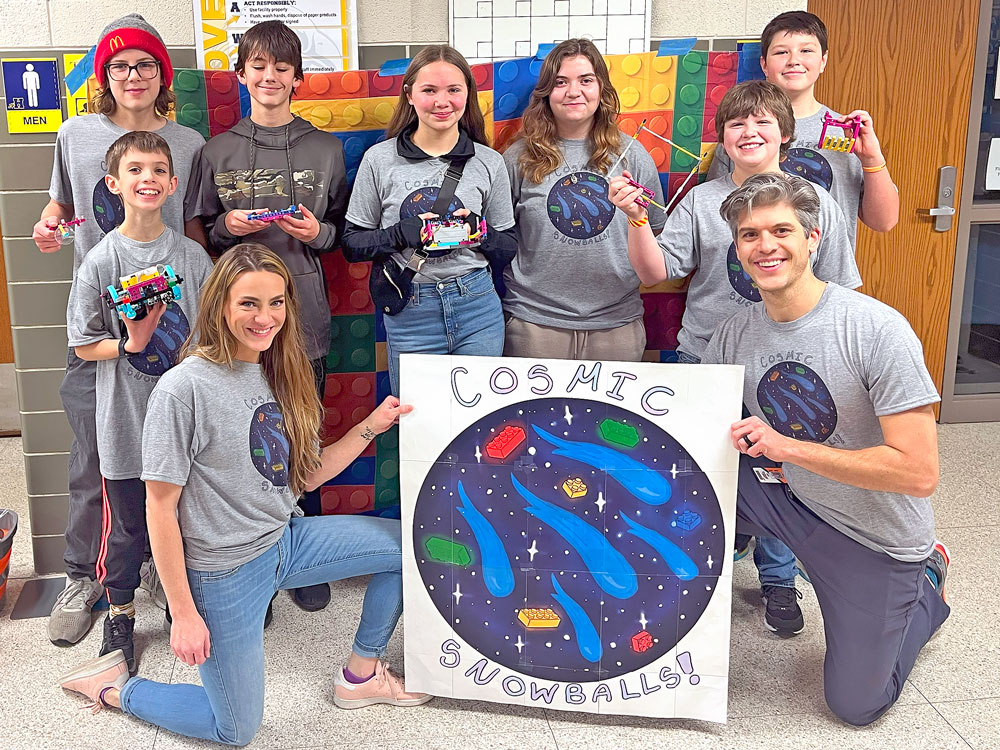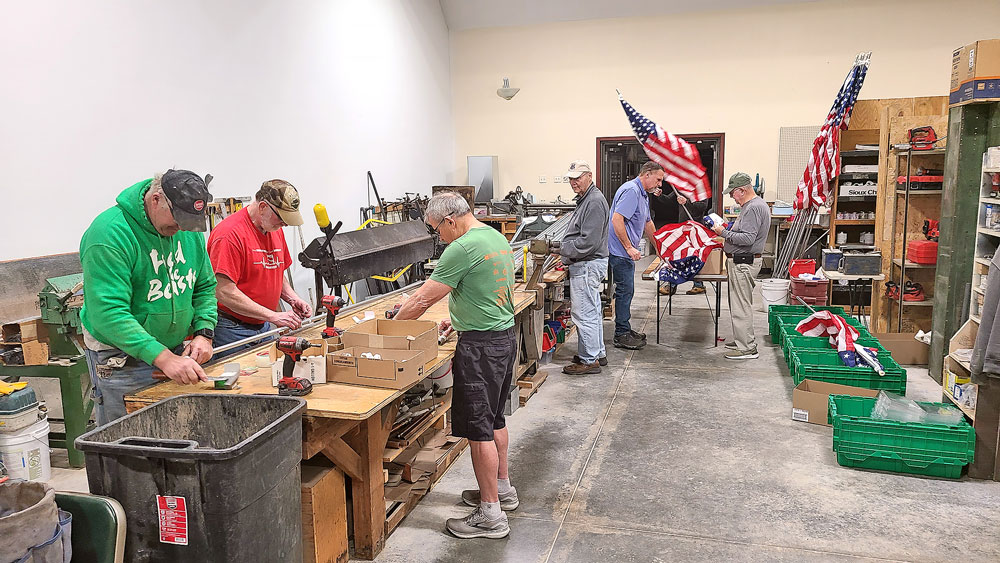NIACC will switch to online classes beginning Monday in response to novel coronavirus
By Bob Steenson, bsteenson@charlescitypress.com
NIACC announced Thursday evening that it will not hold in-person classes next week, March 16 to 20.
“Following the declaration by the World Health Organization that the (novel) coronavirus has reached a global pandemic level, North Iowa Area Community College will be taking measured steps to help reduce the spread of the virus and limit exposure to the NIACC community,” NIACC President Steve Schulz said in a statement.
 “March 16-20, following spring break, face-to-face classes on the NIACC campus will not meet,” he said. “Online courses will meet as planned. Beginning March 23, the majority of NIACC classes will transition online until further notice.”
“March 16-20, following spring break, face-to-face classes on the NIACC campus will not meet,” he said. “Online courses will meet as planned. Beginning March 23, the majority of NIACC classes will transition online until further notice.”
Schulz said these steps will be taken:
• Students in continuing education classes will be contacted by NIACC staff in the coming days.
• Lecture format classes will move online.
• Select lab-based, hands-on classes will continue to meet in-person as scheduled.
• Any exceptions will be addressed on a case-by-case basis.
• All athletic practices and activities will be suspended until further notice as of Friday (today), and student-athletes can expect communication from their coaches in the near future.
Instructors will be reaching out to students by Friday, March 20, to clarify if a class is online or in person and explain expectations for students moving forward. Students can expect to hear from their instructor by March 20 at the latest.
“The NIACC campus and all NIACC centers will remain open,” Schulz said. “In an effort to provide educational continuity, computer access will be available on campus in the Student Learning Center, the Media Center and McAllister Hall rooms 105 and 110 for those students who do not have access to a computer or the internet.”
The Recreation Center on the main campus will be closed to all students, faculty, staff and outside visitors until further notice, Schulz said.
“This measure will allow the college to significantly decrease the number of students and visitors on campus, and in doing so will reduce the risk of exposure to the NIACC community,” he said.
“Students traveling home for spring break are strongly encouraged to stay home, to avoid the risk of infection,” he said.
NIACC’s residence halls will be open. Students who currently live on campus and wish to remain there must register with Student Services by noon on Friday, March 20.
“Dining services will also be open, but may be provided on a limited basis. Additional housing information is forthcoming,” Schulz said.
“Administration will continue to monitor the outbreak with the latest information from the Centers for Disease Control and Prevention, the Iowa Department of Public Health and local health officials. If the spread of the virus worsens, NIACC may implement additional safety measures as needed,” he said
Ongoing updates will be posted to the NIACC webpage – www.niacc.edu/coronavirus.
We want to emphasize there are no identified cases of COVID-19 at NIACC,” Schulz said. “These measures are being put into place to protect the health and safety of our students, staff and faculty.
All three public universities in the state — Iowa State University, the University of Iowa and the University of North Iowa — have announced they will hold classes online after the end of spring break this week, for at least two weeks.
Some private colleges and universities in Iowa have announced similar decisions.
The Iowa Department of Health (IDPH) said on Thursday that it is not making any recommendations to cancel planned events and large gatherings at this time.
“Iowa has not identified community spread of COVID-19 at this time, and absent community spread or additional guidance from our federal partners, we aren’t making any recommendations to cancel events,” said Dr. Caitlin Pedati, IDPH medical director and state epidemiologist.
“This is, however, a very fluid situation and we urge the public to closely monitor messaging from the Iowa Department of Public Health for updated guidance,” she said.
The Iowa department noted that the CDC has provided specific guidance for high risk groups.
Older adults and those with chronic health conditions should stay away from others who are sick, limit close contact with others in general, avoid crowds and wash hands often.
“The CDC also recommends that event organizers prepare for the possibility of outbreaks and ensure they have contingency plans in place should the need arise,” IDPH said.
The situation related to COVID-19 is changing rapidly, and Iowans should closely monitor messaging from the IDPH and CDC for updated guidance if or when community spread of disease is identified, the state organization said.
Testing at the Iowa State Hygienic Laboratory has indicated two additional cases of COVID-19 in Iowa residents, a total of 16 positive cases. An additional 16 tests were negative, Gov. Kim Reynold’s office announced Thursday evening.
IDPH said both new cases are tied to the same Egyptian cruise as other positive cases in the state. Both are older adults, age 61 to 80. One is from Johnson County and one is from Carroll County, and both are recovering at home in isolation.
Reynolds said the IDHP has put out guidance for PK-12 school administrators on COVID-19 policies, but “at this time, the Iowa Department of Public Health is not advising any school closures.
“The health and safety of our students, teachers and faculty is a top priority,” Reynolds said.
“This situation remains very fluid, and we will continue to equip local school districts with the information they need,” the governor said. “If any school districts have questions or concerns, please reach out to IDPH.”
IDPH recommended that schools take steps to protect the health of their students and staff, such as teaching and emphasizing safe habits and routinely cleaning frequently touched surfaces.
But the IDPH advised against cancelling classes unless the novel coronavirus is confirmed to be spreading among the community from person to person.








Social Share